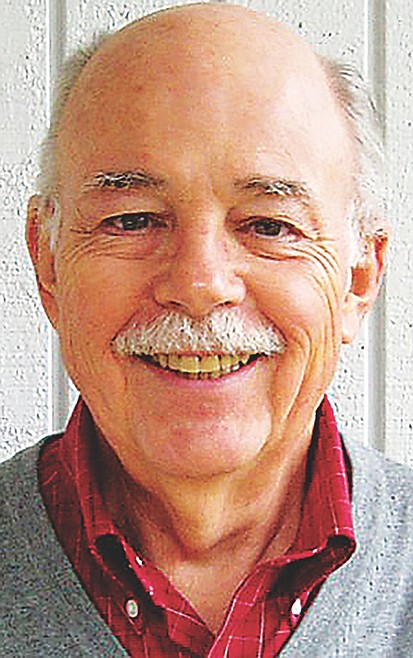'Truth-pieces' in the truth puzzles
PAUL GRAVES, Contributing Writer | Bonner County Daily Bee | UPDATED 4 years, 4 months AGO
What’s a person supposed to believe is true anymore? In this time of information overload, no-holds-barred truth assertions, or obvious disinformation, it’s easy to be confused as to what is, or isn’t, true. Whether we’re talking about COVID-19, economy, religion, political “reality,” or a variety of topics, “the truth” is often hard to figure out.
Maybe that’s why, many years ago, I began to think in terms of “truth-pieces.” My basic thought: Truth-pieces are all we have of the full truth. No one person can honestly claim to know the “full truth”. If the claim is made, it isn’t true.
First, a metaphor, then an application of that metaphor. Do you enjoy jigsaw puzzles? While I get impatient with difficult puzzles, they fascinate me. Recently I’ve discovered some commercial puzzles called “Edgeless” puzzles, “Infinity” puzzles.
Some simply have no traditional edges, which takes away our temptation to build the puzzle’s border and work inwardly. Some puzzles are so complex that they can be put together in different shapes, thus complicating the process all together. Imagination and technology have revolutionized the puzzle industry. Consider one of these Infinity/Edgeless puzzles as the embodiment of “truth”. Each intricate piece of the puzzle is a “truth-piece.” What we believe in our heads and/or our hearts are very small pieces of the greater truth puzzle. My bias? To think otherwise may be an exercise in the arrogance of certainty. So let’s overlay this metaphor onto the presence of COVID-19 in north Idaho. Here’s a truth-piece: COVID-19 isn’t as active in Bonner County as it is in Kootenai County. But it is here.
Its lower presence creates its own truth-pieces, especially around mask-wearing and social distancing. Some persons believe these two tactics are totally unnecessary, while others wear masks and keep their distance from others regularly. Whose truth-piece fits?
Maybe we don’t really know, but we act on what we believe to be true. Where do our truth-pieces come from? Why do we believe our truth-pieces, but refuse to believe another person’s truth-piece?
Oh, one more twist of some new puzzles: a 1000-piece puzzle may have 1005 pieces, so five pieces may not belong, but they’re part of the puzzle. We have to decide which ones are not part of the puzzle. Wow. Truth-pieces can be like that. Some pieces that appear as “truth” may really not be true at all. It’s our job to decide which are true.
For many of us, that’s a challenge when it comes to COVID-19. Who are we going to believe? A family member, a neighbor, what we hear on TV news or in the newspaper? Some persons believe reputable science. Others don’t. Why do we believe or disbelieve those persons or sources?
Why do we trust our truth-pieces? Indeed, a basic element in placing truth-pieces into a truth puzzle is some level of Trust that the piece fits where we put it because we trust our source.
Let’s consider how our COVID-19 truth-pieces fit into the COVID-19 section of a much larger Truth puzzle. The Geezer Forum begins its fall schedule next Tuesday, Sept. 8. And our topic centers on COVID-19. We will meet only virtually, not in-person.
Katherine Hoyer, public information officer for the Panhandle Health District will be our speaker. She will focus on the PHD’s work with COVID-19 with up-to-date information. Katherine will present the truth-pieces from PHD even as we share our own truth-pieces.
Please contact me for a link to the public meeting. I’ll be glad to share it, so you can be part of the virtual conversation next Tuesday, Sept. 8, 2:30-4 p.m.
Paul Graves, M.Div., is Lead Geezer-in-Training for Elder Advocates, a consulting ministry on aging issues. Contact Paul at 208-610-4971 or elderadvocates@nctv.com.


